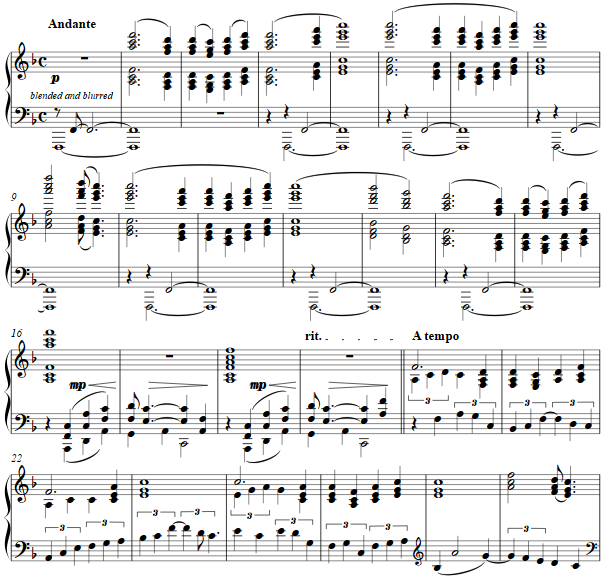Music and Texts of GARY BACHLUND
Vocal Music | Piano | Organ | Chamber Music | Orchestral | Articles and Commentary | Poems and Stories | Miscellany | FAQs
On "I've been 'buked" - (2017)
for piano
As may be found in The Hayward Collection of Negro Spirituals and other hymnals, this tune's origin is obscure and yet became iconic for many when Mahalia Jackson sang it in the March on Washington, 28 August 1963.
One reads: "The March on Washington for Jobs and Freedom, the March on Washington, or The Great March on Washington, was held in Washington, D.C. on Wednesday, August 28, 1963. The purpose of the march was to stand up for civil and economic rights for African Americans during a time when racism was more prevalent throughout society. At the march, Martin Luther King Jr., standing in front of the Lincoln Memorial, delivered his historic "I Have a Dream" speech in which he called for an end to racism." In "March on Washington for Jobs and Freedom," Wikipedia article, n. d. "Among the most quoted lines of the speech include 'I have a dream that my four little children will one day live in a nation where they will not be judged by the color of their skin, but by the content of their character. I have a dream today!' " In "I Have a Dream," Wikipedia article, n. d.
The song lyric is in a dialect: "Iíve been Ďbuked aní Iíve been scorned, children / Iíve been Ďbuked aní Iíve been scorned / Iíve been talked about, shoís youíre born," and continues with "Dere is trouble all over dis world / Children, dere is trouble all over dis world," followed by "Ainít gwine to lay my Ďligion down / Children, ainít gwine to lay my Ďligion down."
The reference is in part to Job 16 and in part to Luke 22: 63-65. "The men who held Jesus in custody were ridiculing and beating him. They blindfolded him and questioned him, saying, 'Prophesy! Who is it that struck you?' And they reviled him in saying many other things against him."
In the same way as the song lyric captures a Sea Island Creole dialect, this passage from Luke reads interestingly in the Gullah: "De sodja dem wa beena gyaad Jedus da mek fun ob um an beat um. Dey tie a rag oba e eye, den dey knock um an say, 'Ef ya a prophet, tell we who dat knock ya!' And dey tell Jedus plenty oda ting fa hole um cheap." (De Nyew Testament in Gullah, American Bible Society, 2005.
The piano work restates the melody intact in several transpositions and with differing textures. The first is parallel first inversion triads over a pedal F, the second a cantabile with three-against-two rhythms, the third in moving to G major becomes more rhapsodic, and the last moving to B major even more so.
2 pages, circa 4' 00" - an MP3 demo is here:
The score is available as a free PDF download, though any major commercial performance or recording of the work is prohibited without prior arrangement with the composer. Click on the graphic below for this piano score.
